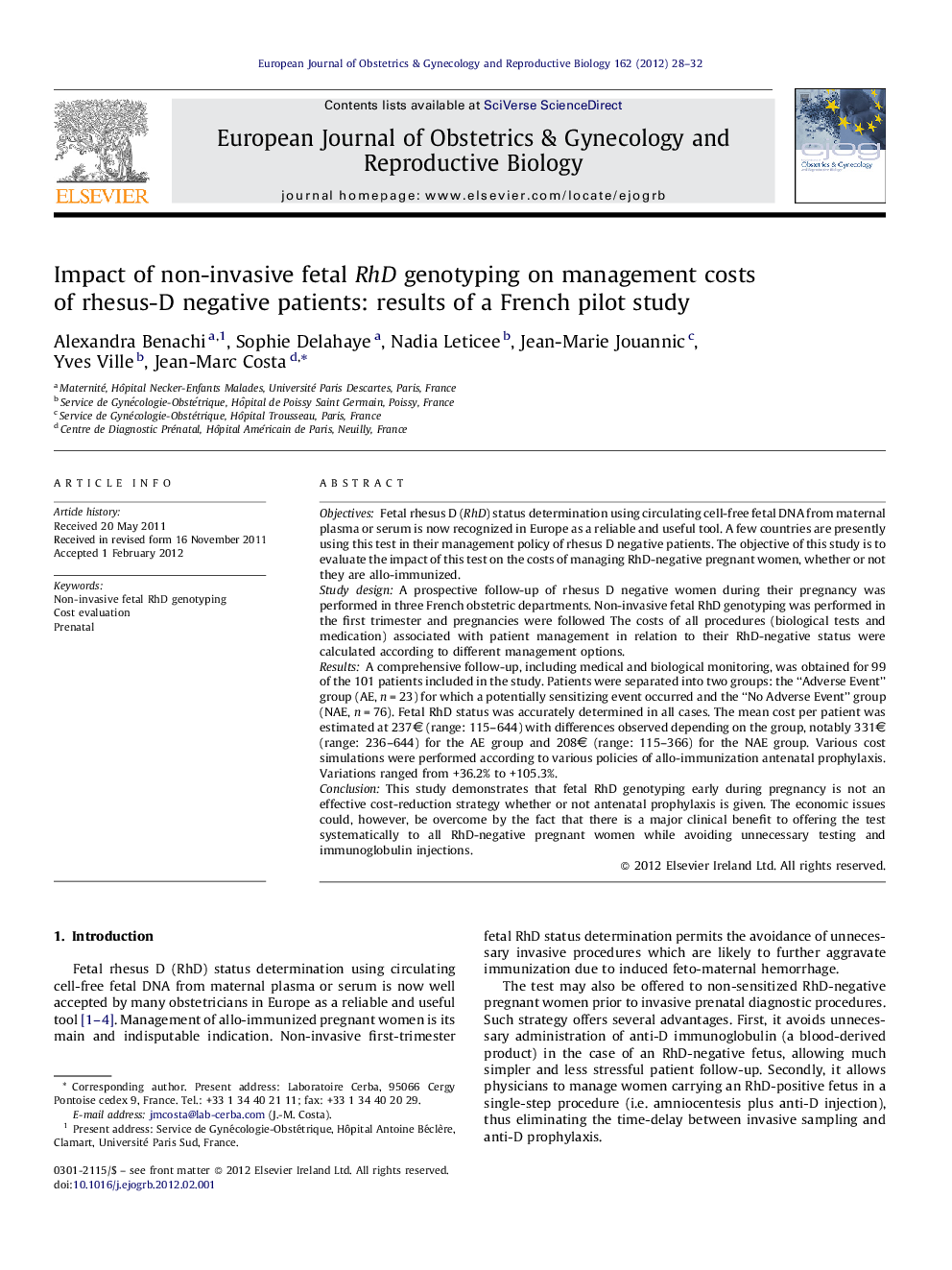| کد مقاله | کد نشریه | سال انتشار | مقاله انگلیسی | نسخه تمام متن |
|---|---|---|---|---|
| 3920604 | 1599829 | 2012 | 5 صفحه PDF | دانلود رایگان |

ObjectivesFetal rhesus D (RhD) status determination using circulating cell-free fetal DNA from maternal plasma or serum is now recognized in Europe as a reliable and useful tool. A few countries are presently using this test in their management policy of rhesus D negative patients. The objective of this study is to evaluate the impact of this test on the costs of managing RhD-negative pregnant women, whether or not they are allo-immunized.Study designA prospective follow-up of rhesus D negative women during their pregnancy was performed in three French obstetric departments. Non-invasive fetal RhD genotyping was performed in the first trimester and pregnancies were followed The costs of all procedures (biological tests and medication) associated with patient management in relation to their RhD-negative status were calculated according to different management options.ResultsA comprehensive follow-up, including medical and biological monitoring, was obtained for 99 of the 101 patients included in the study. Patients were separated into two groups: the “Adverse Event” group (AE, n = 23) for which a potentially sensitizing event occurred and the “No Adverse Event” group (NAE, n = 76). Fetal RhD status was accurately determined in all cases. The mean cost per patient was estimated at 237€ (range: 115–644) with differences observed depending on the group, notably 331€ (range: 236–644) for the AE group and 208€ (range: 115–366) for the NAE group. Various cost simulations were performed according to various policies of allo-immunization antenatal prophylaxis. Variations ranged from +36.2% to +105.3%.ConclusionThis study demonstrates that fetal RhD genotyping early during pregnancy is not an effective cost-reduction strategy whether or not antenatal prophylaxis is given. The economic issues could, however, be overcome by the fact that there is a major clinical benefit to offering the test systematically to all RhD-negative pregnant women while avoiding unnecessary testing and immunoglobulin injections.
Journal: European Journal of Obstetrics & Gynecology and Reproductive Biology - Volume 162, Issue 1, May 2012, Pages 28–32